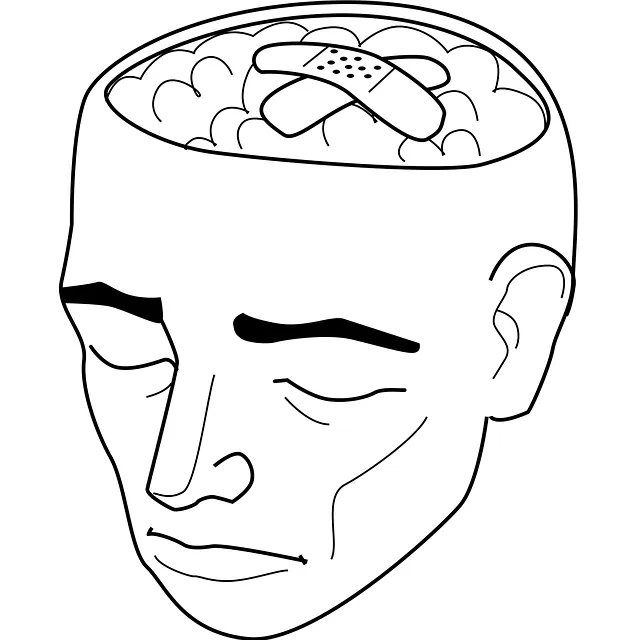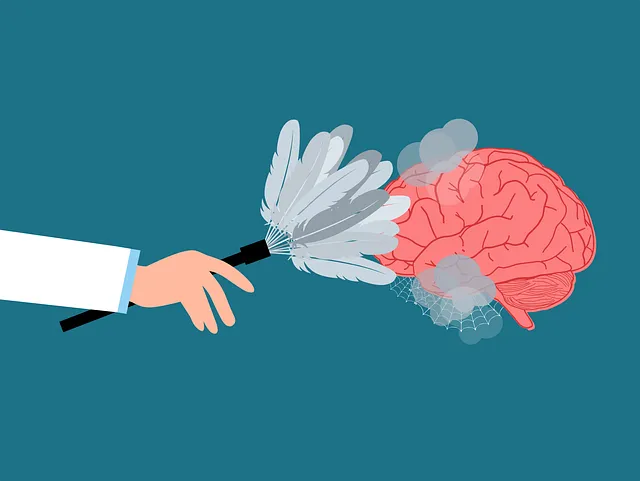Kaiser Permanente in Centennial, Colorado, offers specialized mental wellness group facilitation as a key service, creating safe spaces for individuals facing mental health challenges. Facilitators act as guides using empathy and active listening to foster open dialogue and connection, enhancing social support and empowering participants with stress management skills. This holistic approach includes mindfulness exercises, guided meditations, interactive discussions, and creative activities, contributing to improved mental health and confidence. Group therapy sessions provide a supportive community, fostering self-awareness, peer learning, and coping strategies through shared experiences. Kaiser Permanente's comprehensive mental health services cater to diverse needs, including innovative programs for anxiety relief and emotional healing, as well as a Mental Wellness Podcast Series.
Mental wellness group facilitation is a powerful tool for fostering community and healing. This article explores effective techniques used by professionals, such as those offered by Kaiser Permanente’s Mental Health Services in Centennial, to create safe, supportive environments. We delve into understanding the dynamics of group therapy, examining benefits like increased social connection and improved coping skills while also acknowledging challenges. From icebreakers to structured discussions, discover strategies that enhance mental wellness in a group setting, all accessible through Kaiser Permanente’s comprehensive services in Centennial.
- Understanding Mental Wellness Group Facilitation
- Kaiser Permanente's Mental Health Services in Centennial
- Effective Techniques for Group Facilitation
- Benefits and Challenges of Group Therapy Sessions
Understanding Mental Wellness Group Facilitation

Mental wellness group facilitation is a specialized skill that plays a pivotal role in supporting individuals navigating mental health challenges. It involves creating a safe and supportive environment where participants can share their experiences, process emotions, and learn coping strategies from one another. Understanding this dynamic is crucial when considering the impact it can have on individual well-being and community building within the context of services like those offered by Kaiser Permanente in Centennial.
Facilitators act as guides, using empathy building strategies to foster open dialogue and connection among group members. By implementing effective communication techniques and practicing active listening, facilitators create a sense of belonging and encourage participants to share their stories. This process not only enhances social support but also empowers individuals with practical stress management skills. Additionally, risk assessment is an integral part of facilitating these groups, ensuring the safety and well-being of everyone involved while navigating sensitive mental health topics.
Kaiser Permanente's Mental Health Services in Centennial

Kaiser Permanente, a renowned healthcare organization, offers comprehensive Mental Health Services in Centennial, catering to diverse needs. Their approach integrates various techniques, from therapy sessions and support groups to innovative programs aimed at anxiety relief and promoting emotional healing processes. The services are designed to create a nurturing environment where individuals can explore their mental wellness journeys.
The facility’s offerings include specialized care for common mental health challenges while also recognizing the importance of holistic well-being. They encourage open discussions, providing a platform for sharing experiences, which is beneficial for building community and gaining different perspectives. Additionally, Kaiser Permanente has initiated a Mental Wellness Podcast Series Production, extending their support beyond traditional therapy, making resources more accessible through modern media formats.
Effective Techniques for Group Facilitation

Effective group facilitation techniques are essential for fostering a supportive environment that promotes mental wellness among participants. One proven approach is to create a safe and non-judgmental space, encouraging open communication and active listening. This helps individuals feel comfortable sharing their experiences and perspectives, building trust within the group. Techniques such as guided meditations and mindfulness exercises can also be integrated, offering moments of calm and self-reflection, which are particularly beneficial for stress reduction and self-esteem improvement.
Additionally, facilitators should employ active engagement strategies like interactive discussions, role-playing scenarios, or even creative activities to enhance participation. These methods not only encourage personal expression but also provide valuable crisis intervention guidance when needed. By fostering a sense of community and empowering individuals to support one another, these techniques contribute to overall mental health and can lead to significant confidence boosting outcomes for members, especially when delivered by professionals like those offered at Kaiser Permanente’s Centennial location.
Benefits and Challenges of Group Therapy Sessions

Group therapy sessions offer a unique and beneficial environment for individuals seeking support and improvement in their mental wellness. One of the key advantages is the sense of community it fosters; members can connect with peers facing similar challenges, creating a supportive network. This shared experience can boost confidence and provide valuable peer-to-peer learning opportunities. Additionally, group therapy allows for an enhanced sense of belonging and understanding, which can be powerful tools in the recovery process. Members can gain insights from one another’s perspectives, leading to increased self-awareness and improved coping strategies.
However, facilitating group therapy also presents certain challenges. Facilitators must navigate dynamic group interactions while ensuring a safe and inclusive space for all participants. Managing different personalities and potential conflicts requires skilled moderation. Furthermore, maintaining confidentiality in an open group setting is crucial for building trust. Facilitators must be vigilant about identifying individuals at risk, especially those with severe mental health conditions, and implement appropriate interventions, such as individual support or referrals to specialized services like the mental health services offered by Kaiser Permanente in Centennial. Effective group therapy also demands a thorough understanding of each member’s needs, which may include addressing burnout prevention strategies for healthcare providers, particularly when dealing with high-risk cases.
Mental wellness group facilitation plays a pivotal role in supportive healthcare environments like those offered by Kaiser Permanente’s Mental Health Services in Centennial. By employing effective techniques, such as active listening, structured agendas, and fostering a safe space, facilitators can unlock the numerous benefits of group therapy. This includes enhanced coping skills, improved social connections, and increased resilience. While challenges exist, such as managing diverse personalities and maintaining confidentiality, the rewards of facilitating mental wellness groups are profound. For those seeking holistic mental health support in Centennial, Kaiser Permanente’s services stand out as a game-changer, underscoring the value of community-based care in navigating life’s challenges.






